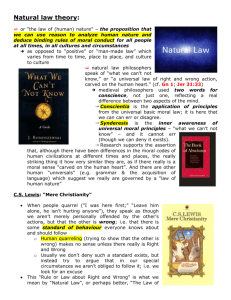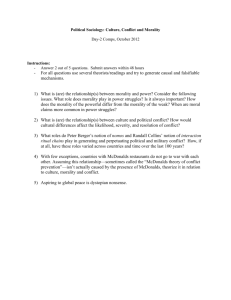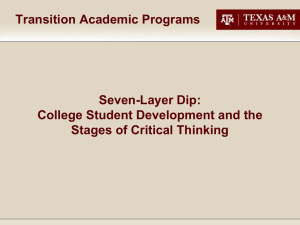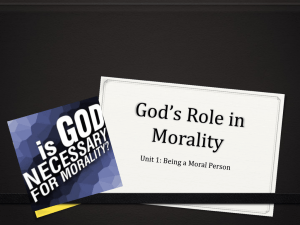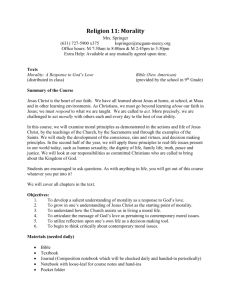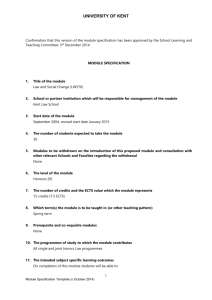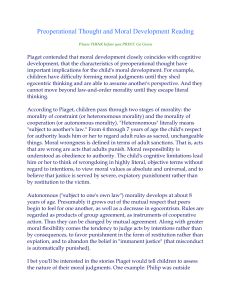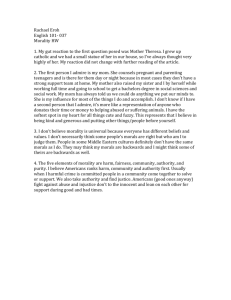EDU 6989- Character and Morality Programs
advertisement
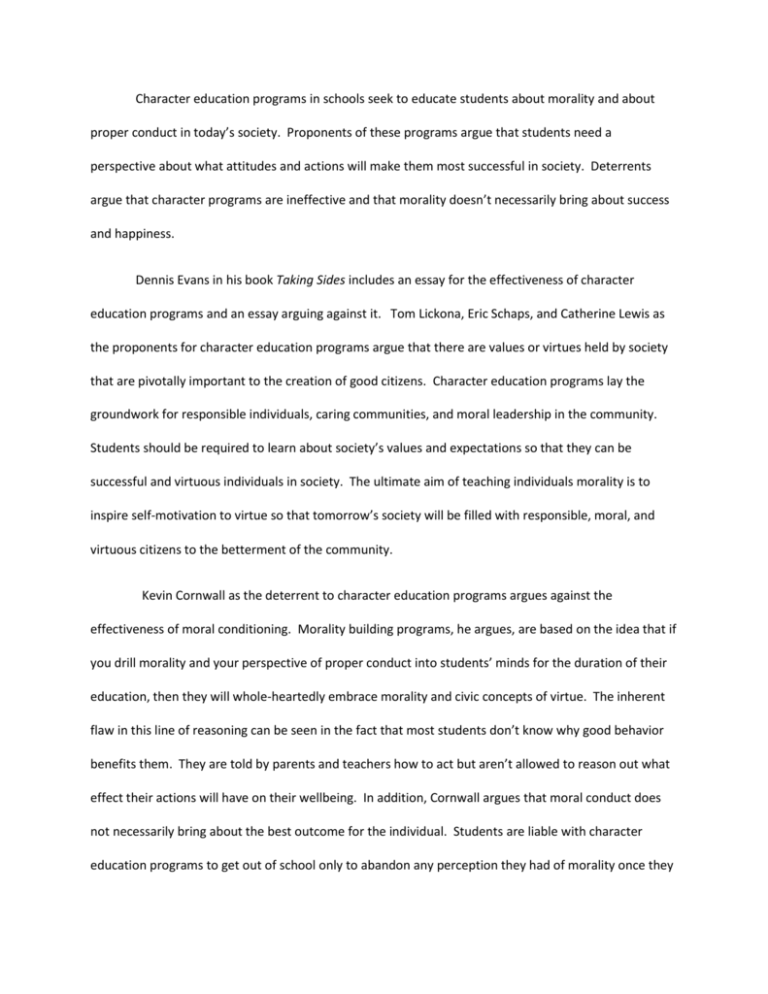
Character education programs in schools seek to educate students about morality and about proper conduct in today’s society. Proponents of these programs argue that students need a perspective about what attitudes and actions will make them most successful in society. Deterrents argue that character programs are ineffective and that morality doesn’t necessarily bring about success and happiness. Dennis Evans in his book Taking Sides includes an essay for the effectiveness of character education programs and an essay arguing against it. Tom Lickona, Eric Schaps, and Catherine Lewis as the proponents for character education programs argue that there are values or virtues held by society that are pivotally important to the creation of good citizens. Character education programs lay the groundwork for responsible individuals, caring communities, and moral leadership in the community. Students should be required to learn about society’s values and expectations so that they can be successful and virtuous individuals in society. The ultimate aim of teaching individuals morality is to inspire self-motivation to virtue so that tomorrow’s society will be filled with responsible, moral, and virtuous citizens to the betterment of the community. Kevin Cornwall as the deterrent to character education programs argues against the effectiveness of moral conditioning. Morality building programs, he argues, are based on the idea that if you drill morality and your perspective of proper conduct into students’ minds for the duration of their education, then they will whole-heartedly embrace morality and civic concepts of virtue. The inherent flaw in this line of reasoning can be seen in the fact that most students don’t know why good behavior benefits them. They are told by parents and teachers how to act but aren’t allowed to reason out what effect their actions will have on their wellbeing. In addition, Cornwall argues that moral conduct does not necessarily bring about the best outcome for the individual. Students are liable with character education programs to get out of school only to abandon any perception they had of morality once they realize they can be successful by other means. A more effective attempt to instill successful conduct in students would be a program where students are allowed to define their own sense of morality by weighing the advantages and disadvantages of each choice, attitude, or action. At the center of this argument lies a disagreement over ideology. Those in favor of character building program believe that morality and good citizenship have been handed down over the centuries by the theologians and philosophers who have gone before us. Their perspective of virtue and the state of humanity, they reason, is essential to effective, caring, benevolent societies made up of motivated moral individuals. Those who fight against character building programs come from the perspective that believes that the majority perspective of society up until now has been mostly flawed, with a foundation of conservative ideology that comes from a religious perspective. At the center of this issue is a battle waging over the remnants of Christianity that still remain in society. Christians in the public school system from the beginning have argued that biblical principles should be included in curriculum because of their undeniable truth and applicability to the world. The effectiveness of morality and moral conduct in society is now being questioned by liberals who seek to redefine perceptions of right and wrong. This issue is an example of the larger conflict between conservatives and liberals taking place in today’s society and in America’s schools. Conservatives are desperately trying to hold onto values and virtues praised and taught by previous generations while liberals are desperately trying to throw off the shackles of yesterday’s conservative religious ideology. References: Evans, Dennis ed. (2008). Taking Sides: Clashing Views in Teaching and Educational Practice. Boston, MA: McGraw Hill.

